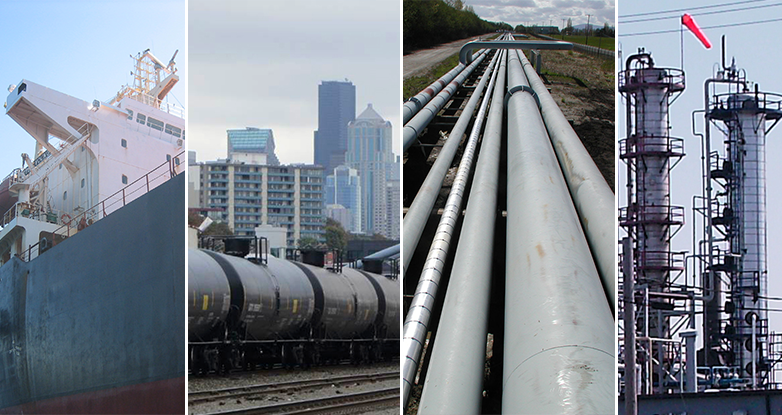Business & industry requirements
Spill prevention and preparedness requirements
In general, we require:
- Inspections of oil-handling facilities, certain vessels, and oil transfers over water.
- Contingency or response plans, to reduce response time in case a spill happens.
- Advanced notice of oil transfers over water.
- Proof that oil handling facilities and vessels have the financial resources to pay the costs of cleanup and damages of an oil spill.
Our requirements for vessels include inspections of vessels and oil transfers over water, preventive measures for oil transfers, vessel emergency reporting, oil spill contingency planning, oil spill drills, and membership in an international P&I club or obtaining a certificate of financial responsibility. What we require depends on the type of vessel.
We have regulations for transferring oil over water, inspections, staff training, spill contingency plans, oil spill drills, and obtaining a certificate of financial responsibility. What we require depends on whether a facility is Class 1, 2, 3, or 4.
We require railroads and pipelines operating in Washington to be prepared to respond to spills by developing spill contingency plans and practicing the plans with oil spill drills. Pipelines must obtain a certificate of financial responsibility. We also require reporting of oil moved by these modes of transportationn.
Primary response contractors assist contingency plan holders in the event of a spill. We have requirements for their certification.
Spill reporting and response requirements
- We require anyone spilling oil or hazardous materials to report the spill.
- Industry with oil spill contingency plans or spill response plans may have additional requirements.
Contact information
Spill Prevention, Preparedness, and Response Program360-407-7455


